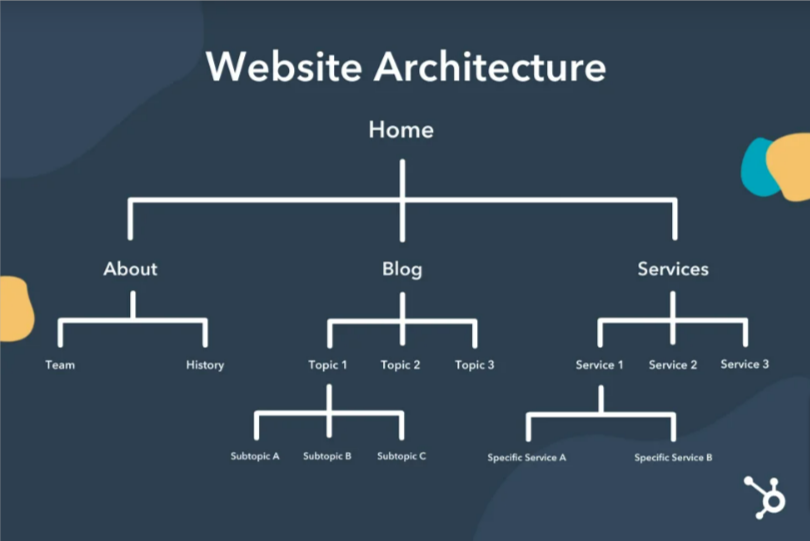Need to boost your online store’s visibility? An e-commerce SEO audit can help! Many online shops miss out on sales because of hidden website issues.
Maybe your site loads slowly, or there are broken links. These small problems can send customers to other stores. But with a simple e-commerce SEO audit, you can find and fix these issues. The result? More happy customers and better sales for you!
Grasping the Ecommerce SEO Audit Concept
An Ecommerce SEO audit looks at an online store’s website to find what’s good and what needs fixing for search engines.
This helps your store appear more in search results, which means more visitors and sales. It spots problems like slow pages or hard-to-use features.
How it’s Different from Regular SEO Audits:
While regular SEO checks any website, E-commerce SEO focuses just on online stores.
It looks at things like product pages and how people pay.
Robb Fahrion, the managing partner of the Flying V Group, once said, “The problem a lot of times we see is that the scale opportunity for the business is limited… And from an SEO perspective, we’re restricted to what that platform gives us.” This shows why it’s important to check each online store platform’s unique needs.
The Benefits of Ecommerce SEO Audit
• Enhanced Visibility: A thorough SEO audit ensures that your website adheres to the best practices set by search engines, increasing the likelihood of appearing on the first page of search results.
• Improved User Experience: SEO audits often uncover website speed, mobile optimization, and user navigation issues. Addressing these can significantly enhance the user experience, leading to longer site visits and higher conversion rates.
• Cost-Effective Marketing: Instead of pouring money into paid advertising campaigns with temporary results, investing in SEO provides long-term organic growth. An effective audit can highlight areas of improvement, ensuring you get the best ROI on your SEO efforts.
• Insight into Competitor Strategies: An SEO audit focuses on something other than your website. It also provides insights into what your competitors are doing right, allowing you to adapt and stay ahead of the curve.
• Building Trust and Credibility: A well-optimized website that ranks high on search engine results is often perceived as more trustworthy and credible by potential customers.
Essential Elements of a Thorough Ecommerce SEO Audit
Understanding online stores can be tricky. An Ecommerce SEO Audit checks every part of your website to help it get more visitors and sales. Let’s look at what’s in this check:
On-page factors:
- Product Descriptions: These should be unique, engaging, and informative. Avoid manufacturer descriptions as they can lead to duplicate content issues. Tailor each description to your target audience, highlighting the benefits and features of each product.
- Metadata: This includes title tags, meta descriptions, and header tags. Ensure they are optimized with relevant keywords and are of the appropriate length.
- Keyword Placement: While it’s crucial to include relevant keywords, they should feel natural within the content. Overstuffing can lead to penalties from search engines.
Off-page factors:
- Quality Backlinks: These are links from other reputable websites pointing to yours. They act as votes of confidence in your content and can significantly boost your site’s authority.
- Social Signals: Engagement metrics from social media platforms, like shares, likes, and comments, can influence your site’s SEO. Ensure you have an active social media presence and encourage interactions.
- Influencer Partnerships: Collaborating with influencers in your niche can drive targeted traffic to your site and enhance brand awareness.
Technical considerations:
- Site Architecture: A well-structured website makes it easier for search engines to crawl and index your pages. Implement a logical hierarchy and use tools like XML sitemaps to aid search engines.
 Source: Hubspot
Source: Hubspot - Mobile-friendliness: With a significant chunk of users shopping on mobile devices, ensure your site is responsive and offers a seamless mobile experience.
- Page Load Speeds: Slow-loading pages can deter potential customers and hurt your search engine rankings. Optimize images, leverage browser caching, and consider using a content delivery network (CDN) to improve load times.
User Experience (UX) and Conversion Rate Optimization (CRO) elements:
A site that’s easy to navigate and intuitive can significantly enhance user satisfaction.
Implement clear call-to-action buttons, ensure your site is visually appealing, and regularly test different elements to see what resonates most with your audience. Remember, a happy visitor is more likely to convert into a loyal customer.
By giving due attention to each of these elements, your E-commerce SEO Audit will be holistic, ensuring no stone is left unturned in the quest for online dominance.
Deciphering and Acting on Ecommerce SEO Audit Findings
Understanding online store SEO can be tricky because there’s a lot of information. But knowing this info helps your store do better. In this part, we’ll explain the important details from your SEO check and show you how to use them to make your store better online.
Interpreting Key Metrics and Understanding Their Implications:
Every metric in an SEO audit tells a story about your website’s performance. Here are some pivotal ones to consider:
- Organic Traffic: This indicates the number of visitors coming to your site through unpaid search results. A decline might suggest issues with keyword ranking or site visibility.
- Bounce Rate: A high bounce rate means visitors are leaving your site without interacting further. This could be due to irrelevant content, poor user experience, or slow load times.
- Page Load Time: Slow-loading pages can deter potential customers and negatively impact your search engine ranking.
- Backlinks: The number and quality of sites linking back to yours. High-quality backlinks can boost your site’s credibility and ranking.
Creating a Prioritized Action Plan Based on Audit Results:
Once you’ve deciphered the metrics, it’s time to act. Here’s a step-by-step guide:
- Address Critical Issues First: Start with issues that directly impact user experience, such as broken links or slow-loading pages.
- Optimize Content: Ensure that your content is relevant, up-to-date, and incorporates the right keywords. This can improve your site’s visibility and ranking.
- Enhance Backlink Profile: Seek opportunities to gain high-quality backlinks. Consider guest posting or collaborating with reputable sites in your niche.
- Monitor and Adjust: SEO is an ongoing process. Regularly review your metrics, assess the effectiveness of your strategies, and adjust as needed.
Unlocking E-commerce Success with Flying V Group
Online shopping is always changing. To be the best, you need more than just a good website or nice products. You need a strong plan online. An E-commerce SEO audit helps businesses do better online.
Flying V Group can help with this. We know a lot about E-commerce SEO and can turn your audit into a plan for success.
Want to do better online? Choose Flying V Group for your SEO check. With us, you’ll see more visitors, higher rankings, and more sales. Contact us now to start your online success journey.
FAQs
What is an E-commerce SEO audit?
An E-commerce SEO audit is a comprehensive analysis of an online store’s website to evaluate its visibility in search engines. It identifies strengths, weaknesses, and opportunities to improve search rankings, ensuring the site is optimized for both search engines and users.
How to do an E-commerce SEO audit?
Conducting an E-commerce SEO audit involves several steps, including analyzing website structure, reviewing on-page elements (like meta tags and content), checking off-page factors (like backlinks), assessing technical aspects (like site speed and mobile-friendliness), and evaluating user experience. Tools and manual checks are used in combination for a thorough analysis.
What are the steps in an SEO audit?
We check if search engines can see your site. We look at page titles, descriptions, and content. We see who’s linking to you and what others say about you online. We test how fast your site is, if it works on phones, and if it’s safe. We see if it’s easy for people to use and compare it to other sites. Lastly, we make a list of things to fix or improve.






0 Comments